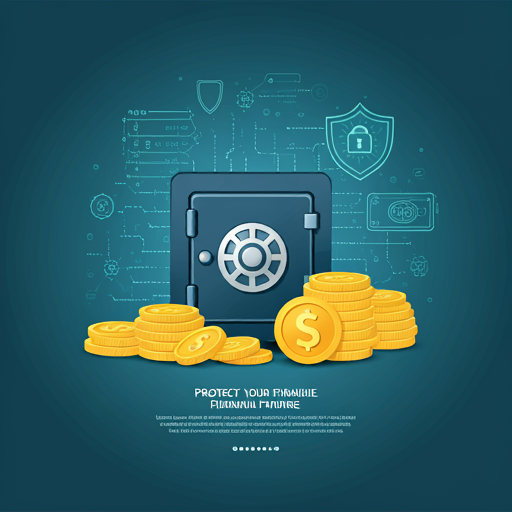Introduction to Cybersecurity in Finance
Importance of Cybersecurity in the Financial Sector
In today’s financial landscape , cybersecurity is crucial. Financial institutions face increasing threats from cybercriminals. These threats can lead to significant financial losses and reputational damage. For instance, a data breach can cost millions in recovery efforts. He must prioritize robust security measures.
Moreover, regulatory compliance is essential. Non-compliance can result in hefty fines. Institutions must adhere to standards like GDPR. This ensures customer data protection. Protecting sensitive entropy is non-negotiable.
Investing in cybersecurity is a strategic decision. It safeguards assets and builds customer trust. Trust is vital in finance. A secure environment fosters client loyalty.
Overview of Cyber Threats in Cryptocurrency
Cryptocurrency faces numerous cyber threats. These threats include hacking, phishing, and scams. He must remain vigilant against these risks. A single breach can lead to substantial losses. Security measures are essential for protection.
Additionally, decentralized exchanges are vulnerable. They often lack robust security protocols. Users should be cautious when trading. Awareness is key to safeguarding assets.
Common Cybersecurity Threats
Phishing Attacks and Social Engineering
Phishing attacks exploit human psychology. Cybercriminals often impersonate trusted entities. He must recognize these deceptive tactics. A single click can compromise security.
Social engineering manipulates individuals into revealing information. This can lead to unauthorized access. Awareness is crucial for prevention. Trust your instincts and verify sources.
Malware and Ransomware Risks
Malware and ransomware pose significant risks. These malicious programs can disrupt operations. He must understand their potential impact. A ransomware attack can lock critical files. Immediate action is necessary to mitigate damage.
Furthermore, malware can steal sensitive information. This includes personal and financial data. Regular updates and security software are essential. Protecting assets is a top priority.
Best Practices for Safeguarding Assets
Implementing Strong Password Policies
Implementing strong password policies is essential for security. Weak passwords can lead to unauthorized access. He should use complex combinations of letters, numbers, and symbols. This significantly enhances protection against vreaches.
Additionally, regular password updates are crucial. He must avoid reusing passwords across platforms . Multi-factor authentication adds an extra layer of certificate. It is a wise investment in safeguarding assets.
Utilizing Two-Factor Authentication
Utilizing two-factor authentication significantly enhances security. This method requires a second verification step. He should enable it for all sensitive accounts. It provides an additional barrier against unauthorized access.
Moreover, two-factor authentication can involve SMS codes or authentication apps. These options are effective in preventing breaches. He must prioritize this practice for asset protection. Security is a shared responsibility.
Secure Storage Solutions
Hot Wallets vs. Cold Wallets
Hoh wallets are connected to the internet , providing easy access. However, this connectivity increases vulnerability to cyber threats. He should consider the trade-off between convenience and security. Cold wallets, on the other hand, are offline storage solutions. They offer enhanced protection against hacking attempts.
Using cold wallets is advisable for long-term holdings. He must evaluate his storage needs carefully. Security should always be a priority. Protecting assets is essential for financial stability.
Choosing the Right Wallet for Your Needs
Choosing the right wallet is crucial for security. He must assess his specific needs first. Consider the following factors:
Understanding these aspects helps in making informed decisions. Security is paramount in asset management. Protecting investments is a wise strategy.
Regulatory Compliance and Standards
Understanding GDPR and Data Protection Laws
Understanding GDPR is essential for compliance. This regulation governs data protection across Europe. He must ensure that personal data is handled properly. Key principles include transparency, data minimization, and user consent.
Organizations must implement robust data protection measures. This includes regular audits and employee training. Non-compliance can result in significant fines. Protecting customer data is a legal obligation.
Industry Standards for Financial Institutions
Industry standards for financial institutions are critical for stability. He must adhere to regulations like Basel III and MiFID II. These frameworks ensure risk management and transparency. Compliance is essential for maintaining investor confidence.
Regular assessments and audits are necessary. They help identify potential vulnerabilities. Upholding these standards protects both clients and institutions. Security is a fundamental requirement in finance.
Incident Response and Recovery
Developing an Incident Response Plan
Developing an incident response plan is essential for preparedness. He must outline clear procedures for various scenarios. This includes identifying key stakeholders and their roles. A well-defined plan minimizes response time.
Regular training and simulations are necessary. They ensure the team is ready for real incidents. Effective communication is vital during a crisis. Quick action can mitigate potential damage.
Steps to Take After a Cybersecurity Breach
After a cybersecurity breach, immediate action is crucial. He must assess the extent of the damage. This includes identifying compromised systems and data. Quick containment can prevent further loss.
Next, notify relevant stakeholders and authorities. Transparency is essential in these situations. Conduct a thorough investigation to understand the breach. Learning from incidents is vital for future prevention.
The Future of Cybersecurity in Cryptocurrency
Emerging Technologies and Their Impact
Emerging technologies significantly influence cybersecurity in cryptocurrency. Innovations like blockchain enhance transaction security. He must understand the implications of these advancements. Additionally, artificial intelligence can detect anomalies in real-time. This proactive approach minimizes potential threats.
Moreover, quantum computing poses new challenges. It could potentially break existing encryption methods. Adapting to these changes is essential for security. Staying informed is crucial for effective risk management.
Preparing for Future Cyber Threats
As the cryptocurrency landscape evolves, so do the cyber threats targeting it. With the increasing adoption of digital currencies, hackers are becoming more sophisticated. This necessitates a proactive approach to cybersecurity measures. Strong encryption and multi-factor authentication are essential. These tools can significantly reduce vulnerabilities. The rise of decentralized finance (DeFi) also introduces new risks. Investors must remain vigilant and informed. Cybersecurity is not just a technical issue; it’s a financial imperative. Protecting assets is crucial in this volatile market.

Leave a Reply